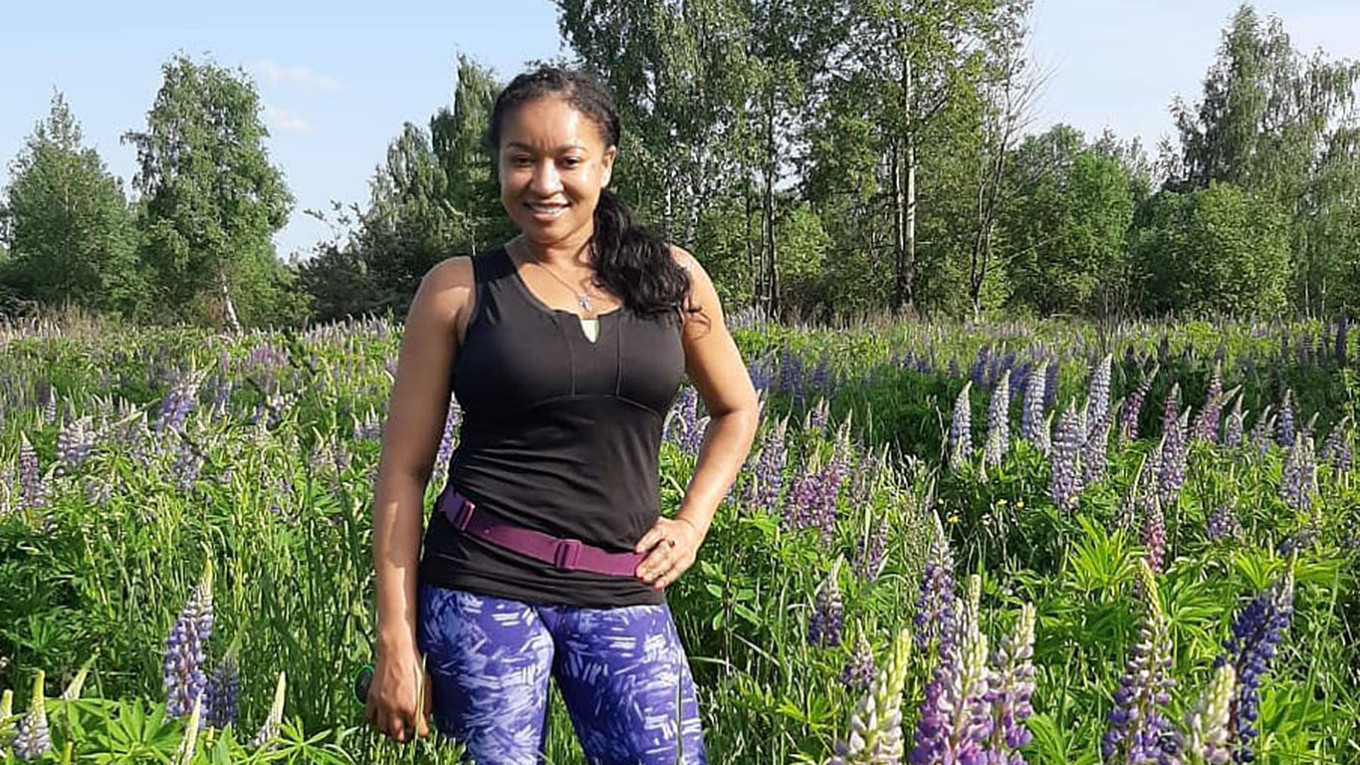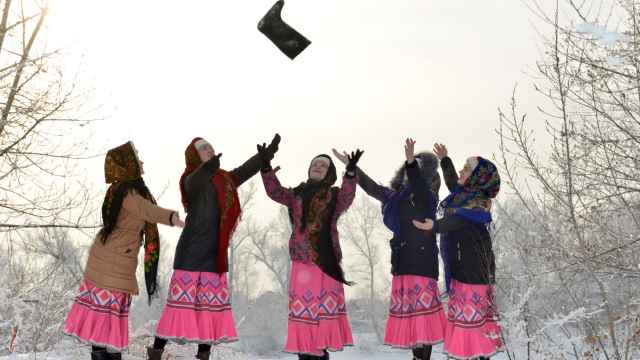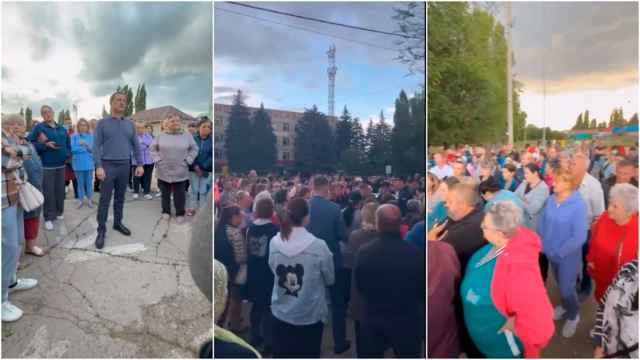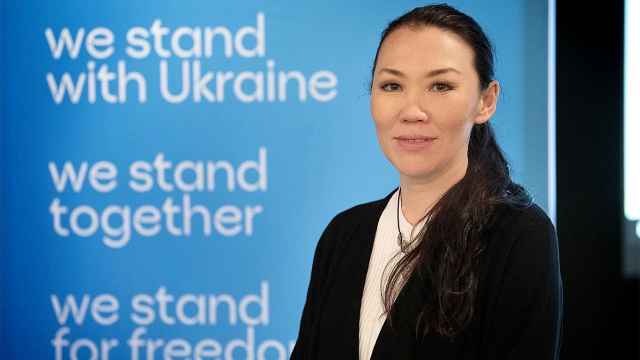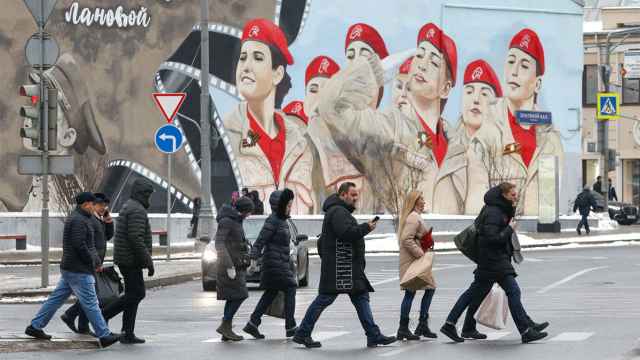Francine Villa thought she’d found refuge. As a Black woman disillusioned with American racism and police violence, she moved to Russia in 2019 and began building a life she believed would be safer, freer and more humane.
She became a Russian citizen. She gave birth there. She even starred in an RT documentary called “Black in the U.S.S.R.”, praising Russia for offering the kind of racial peace she never found in the United States.
Then last week, her neighbors beat her in her own Moscow apartment block. They called her racial slurs. They blocked her entry. They punched her in the face. Her two-year-old child witnessed it all. And when she went to the police, they did what Russian police do best when it comes to racist violence: absolutely nothing.
As someone who’s Black and Russian myself, I wasn’t shocked. I was furious, but not surprised. Because I didn’t flee the West — I fled Russia. I left because racism there isn’t an aberration. It’s as common as the air.
I was born and raised in Russia. I didn’t go there seeking freedom. I came into the world in a country that taught me from childhood that my Blackness made me foreign, suspect or disposable. Every Black person in my family has been physically assaulted at least once. Not just insulted — assaulted. In parks, on public transport, in apartment blocks like Francine’s.
One time I was walking home after surgery, still dizzy from anasthesia. Neighbors I’d never seen before started shouting at me, accusing me of being drunk or on drugs. They demanded to know who my landlord was. I told them I owned the apartment. They laughed in my face. A Black person owning property? To them, that was unthinkable.
This is what Francine walked into. Not a sanctuary, but a pressure cooker. She believed in the lie that many Westerners, especially Black ones, want to believe: that if racism is so loud in the U.S., maybe it’s quiet somewhere else. Maybe you can leave it behind.
You can’t. And in Russia, racism isn’t quiet. It’s just unspoken. Or worse — it’s normalized.
In Russia, prejudice isn’t seen as a problem. It’s seen as common sense.
The N-word gets dropped like it’s nothing. It’s in jokes. Cartoons. Schools. State media. People say it casually in front of children, say it about children. It’s not rare. It’s an inescapable part of the culture.
The only difference between the U.S. and Russia is that in Russia, no one even pretends to care. There are no diversity statements, no public reckonings, no shallow corporate DEI committees. Just raw, untreated contempt.
And if you speak up, you’re too sensitive. If you get attacked, it’s just a misunderstanding. If your neighbors beat you and scream slurs, well, maybe you provoked it.
Francine didn’t know that. She believed the fantasy that the Kremlin loves to sell. The one where the United States is racist and broken, while Russia is morally pure. She starred in propaganda films perpetuating that myth. She gave interviews saying she felt free and safe.
Then reality hit.
When she was useful, she was praised. When she was beaten, she was abandoned.
Francine’s story only made news because of the irony. The woman who praised Russia for its racial harmony gets assaulted in her own stairwell. But if she hadn’t done that RT documentary, would we even know about her case? Would anyone be covering it?
I doubt it. Because this violence isn’t rare.
Ask any Black person who’s lived in Russia long enough.
It goes beyond Francine. The Kremlin likes to present itself as Africa’s friend — hosting summits, preaching anti-colonial solidarity, building “African villages” in Russia. Yet when it comes to real Black people within its borders, the welcome fades fast.
Take the case of François Ndjelassili, a 32‑year‑old doctoral student from Gabon at Ural Federal University in Yekaterinburg.
On Aug. 18, 2023, François was stabbed to death outside of a Burger King after a confrontation with local men who reportedly hurled racial slurs like “negro” before attacking him in a downtown fast‑food restaurant in broad daylight. Two traffic police officers watched from their car, made jokes, said “it’s not our problem,” and only intervened after he was fatally wounded. His murderer, Danil Fomin, was convicted of murder, but not charged with a hate crime even though neo‑Nazi supporters raised money for his legal defense and called him their comrade.
That’s what happens when a Black person is killed in Russia: even with video proof, racial motives are ignored. The state treats it as individual violence, not hate and systemic racism. The message is clear: Black lives aren’t protected here. They aren’t seen as part of “us.”
Meanwhile, Russia’s foreign policy posture calls Africa a “global partner.” Russia’s Foreign Minister Sergei Lavrov lectures about Western racism. Putin claims friendship with the Global South. But within Russia, African students and Black residents face daily insults, physical assaults and sometimes worse. The contrast between public diplomacy and private brutality is nothing short of grotesque.
Because no matter how well you speak the language, how long you’ve lived there, how many documents you carry, you will always be seen as other. You will always be asked, “Where are you really from? Where did you learn Russian so well?” You will always be treated like an intruder. If you dare to own property, walk home alone, speak back — you’re seen as a threat.
The question isn’t why this happened to Francine. The real question is why anyone thought it wouldn’t.
Russia isn’t post-racial. It’s pre-conversation. There is no public space to even name racism, let alone fight it. No protections. No consequences. No justice. And no interest in creating any.
So when the police shrugged off Francine’s case, they were doing what they’ve always done: ignoring racism until it goes away or gets too loud to deny.
But this time, it didn’t go away. Her story is out. And now that myth is cracking.
Here’s what needs to happen.
Francine’s assault must be investigated as a hate crime. Not a dispute between neighbors or an unfortunate incident. A hate crime.
The attackers must be prosecuted. The law already exists — use it.
Russian media must stop burying these cases. Black Russians, African students and migrants shouldn’t disappear when the state finds us inconvenient.
Finally, people outside Russia need to stop pretending that racism only lives in the West. Stop using Russia as some anti-woke fantasyland. Because this is what that fantasy really looks like: a Black mother bleeding in her own stairwell, with a toddler crying beside her, while the system shrugs and says, “Not our problem.”
Being Black in Russia means living with constant doubt. Not in yourself, but in whether anyone will believe you, protect you, see you.
Francine believed Russia could be different. That was her only mistake.
She loved a country that never loved her back. Now, she has to raise a Black child in a place where that child will grow up learning, very early, that promises of safety don't apply to them.
I wish I could say she’s the exception. But she isn't. She’s the rule.
A Message from The Moscow Times:
Dear readers,
We are facing unprecedented challenges. Russia's Prosecutor General's Office has designated The Moscow Times as an "undesirable" organization, criminalizing our work and putting our staff at risk of prosecution. This follows our earlier unjust labeling as a "foreign agent."
These actions are direct attempts to silence independent journalism in Russia. The authorities claim our work "discredits the decisions of the Russian leadership." We see things differently: we strive to provide accurate, unbiased reporting on Russia.
We, the journalists of The Moscow Times, refuse to be silenced. But to continue our work, we need your help.
Your support, no matter how small, makes a world of difference. If you can, please support us monthly starting from just $2. It's quick to set up, and every contribution makes a significant impact.
By supporting The Moscow Times, you're defending open, independent journalism in the face of repression. Thank you for standing with us.
Remind me later.


